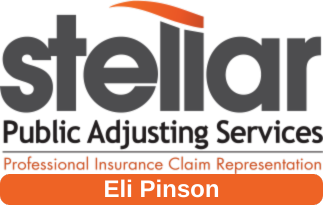This comprehensive guide aims to demystify the appraisal process, shedding light on how properties are evaluated for damages and the role insurance companies play in this equation. It's designed to equip you with the knowledge needed to ensure fair compensation and facilitate the repair process.
At the heart of the appraisal process lies the collaboration between property owners and insurance companies. The objective is to accurately assess the extent of the damage and determine the cost of necessary repairs or replacements. This evaluation not only influences the outcome of insurance claims but also helps in planning the restoration of the affected property. With insights into the appraisal process, property owners can better navigate their claims, ensuring timely and appropriate settlements.
Understanding Property Damage Appraisal
The property damage appraisal process is a critical step for insurance companies to determine the extent of damage and the estimated repair costs. This process involves a thorough inspection of the damaged property, assessment of repair needs, and a detailed report that guides the insurance claim. Understanding this process is key for property owners to ensure their claims are handled efficiently.
The Essentials of Property Damage Appraisal
At its core, the appraisal process serves as the foundation for resolving insurance claims related to property damage. It enables insurance companies to make informed decisions on the value of the damages and the compensation to be awarded. Familiarity with this process is essential for policyholders to navigate their claims effectively.
Defining Property Damage and Its Appraisal
Property damage refers to harm or destruction to real estate or personal property due to events like storms, fires, or vandalism. The role of the insurance company in this context is to evaluate the damage through an appraisal process. This involves assessing the condition of the property, estimating repair costs, and determining the claim amount to compensate the policyholder.
Types of Property Damage Appraisals
Insurance companies utilize various types of property damage appraisals to address the specific needs of each claim. Whether it's commercial or residential property, or specialized assessments for auto and heavy equipment, the goal is to ensure a thorough and fair evaluation of the damage.
Commercial and Residential Claims
Insurance companies differentiate between commercial and residential claims due to the varying nature and scale of the properties. Commercial claims often involve larger spaces and complex business interruptions, requiring a detailed appraisal to account for both physical damages and financial losses. Residential claims focus on homes and personal property, with appraisals aimed at restoring the living conditions of the policyholder.
 ## The Property Damage Appraisal Process
## The Property Damage Appraisal Process
The appraisal process is a systematic approach employed by insurance companies to evaluate and estimate property damage. This essential step ensures that claims are processed based on accurate and comprehensive assessments, facilitating fair and prompt settlements for policyholders.
Steps in the Property Damage Appraisal Process
Key steps in the appraisal process include the initial assessment of damage, documentation, and a detailed analysis to establish the extent of damage and repair costs. This structured approach helps in streamlining claims, making the process transparent and efficient for both the insurance company and the policyholder.
Initial Assessment and Documentation
The first step in the appraisal process involves an on-site visit by an appraiser to assess the damage and document findings. This documentation is critical for insurance companies to begin their evaluation and serves as the basis for determining the extent of damage and the necessary repairs or replacements.
In-Depth Analysis and Evaluation
Following initial documentation, an in-depth analysis and evaluation of the damage are conducted. This phase allows insurance companies to scrutinize the details of the damage, compare repair estimates, and ultimately decide on the claim amount. It's a crucial step to ensure that all aspects of the damage are thoroughly considered.
Role of Property Damage Appraisers
Property damage appraisers play a pivotal role in the appraisal process, acting as the bridge between policyholders and insurance companies. Their expertise and assessments are crucial for determining the extent of damage and the cost of repairs, directly influencing the outcome of insurance claims.
Skills and Responsibilities of Appraisers
Appraisers bring a unique set of skills to the table, including a keen eye for detail and a deep understanding of construction and repair costs. They are responsible for conducting thorough inspections, documenting damages, and preparing detailed reports that outline the scope of repairs and estimated costs.
The Importance of Timely and Accurate Appraisals
Timely and accurate appraisals are essential for the efficient processing of insurance claims. They ensure that policyholders receive fair compensation in a prompt manner, enabling them to begin the restoration process without undue delay. This accuracy also helps in maintaining trust between policyholders and insurance companies.
Navigating Insurance Claims with Property Damage Appraisals
Property damage appraisals are crucial for navigating insurance claims, as they provide a detailed assessment of the damage, which in turn influences the claim outcome. Understanding this process is key for policyholders to ensure their claims are handled fairly and efficiently.
The Relationship Between Appraisals and Insurance Claims
The synergy between property damage appraisals and insurance claims is pivotal in determining the outcome of a claim. Appraisals serve as the bedrock for establishing the extent and value of damage, which in turn influences the insurance company's decision on claim approvals and settlements. This relationship underscores the importance of having a detailed and accurate appraisal, as it directly impacts the financial restitution received by the policyholder.
How Appraisals Influence Insurance Claim Outcomes
Appraisals play a crucial role in insurance claim outcomes, acting as the primary evidence for the extent of damage and the cost of repairs or replacement. An accurate appraisal can significantly sway the insurance company's decision, leading to a fair settlement that covers the policyholder's losses. Conversely, a poorly conducted appraisal may result in underpayment or even denial of the claim, underscoring the importance of thoroughness and precision in the appraisal process.
Working with Insurance Adjusters: What You Need to Know
Collaborating with insurance adjusters is a critical step in navigating insurance claims. Adjusters rely heavily on property damage appraisals to make informed decisions. Policyholders should ensure that the appraisal is comprehensive and reflects the true extent of the damage. Understanding the adjuster’s perspective and providing them with accurate, detailed appraisals can facilitate a smoother claims process and help in achieving a more favorable outcome.
Why You Might Need Your Own Property Damage Appraiser
Securing your own property damage appraiser can be a strategic move to protect your interests during a claims process. An independent appraiser can provide a second opinion that may differ from the insurance company's assessment, offering leverage in negotiations and ensuring that the settlement reflects the true cost of the damages incurred.
 #### Maximizing Your Claim Settlement
#### Maximizing Your Claim Settlement
Employing an independent property damage appraiser can be instrumental in maximizing your claim settlement. A detailed and unbiased appraisal can uncover damages that may have been overlooked or undervalued by the insurance company's appraiser, thereby increasing the settlement amount. This independent assessment ensures that the claim settlement accurately compensates for the losses sustained.
Avoiding Underpayment and Claim Denials
Having an independent appraisal can be a safeguard against underpayment and claim denials. It provides a comprehensive evaluation of the damage, which can be instrumental in challenging the insurance company's findings. This detailed scrutiny helps in preventing discrepancies that could lead to underpayment or outright denial of the claim, thus ensuring fair compensation for the policyholder.
Selecting the Right Property Damage Appraisal Firm
Choosing the right property damage appraisal firm is critical to the claims process. The firm's expertise, reliability, and thoroughness directly impact the accuracy of the damage assessment and, consequently, the fairness of the claim settlement. Selecting a reputable firm ensures that the appraisal process is handled professionally and efficiently.
Key Considerations When Choosing an Appraiser
When selecting a property damage appraiser, key considerations include their expertise in handling similar damage types and their reputation for thoroughness and accuracy. The appraiser's qualifications and experience can significantly affect the outcome of the claims process, making it essential to choose wisely.
Experience and Expertise in Specific Damage Types
An appraiser's experience and expertise in specific types of damage are paramount. Specialized knowledge in areas such as water damage, fire damage, or structural issues ensures a more accurate and comprehensive appraisal. This specificity is crucial for navigating complex claims and achieving fair settlements, highlighting the importance of selecting an appraiser with the right expertise.
Geographic Coverage and Availability
Geographic coverage and availability are also critical factors in choosing an appraisal firm. A firm with a wide geographic reach and readily available appraisers can provide timely services, especially in the aftermath of widespread disasters. This responsiveness is essential for initiating the claims process swiftly and efficiently.
Property Damage Appraisal: Inc (PDA) and Their Unique Offerings
Property Damage Appraisers (PDA) stands out with its unique offerings, including a commitment to providing swift and reliable appraisal services. Their nationwide presence and diverse expertise make them a preferred choice for both insurance companies and policyholders.
Guaranteed Same-Day Service: A PDA Exclusive
PDA offers a guaranteed same-day service, a distinctive feature that sets them apart from other appraisal firms. This expeditious service ensures that appraisals are conducted without delay, facilitating a quicker claims process. This commitment to efficiency underscores PDA’s dedication to client satisfaction and claim resolution.
Nationwide Presence and Diverse Expertise
With a nationwide presence and a team of appraisers skilled in various types of property damage, PDA is well-equipped to handle claims across the board. Their diverse expertise enables them to assess a wide range of damages accurately, from residential and commercial properties to specialty equipment, ensuring comprehensive coverage no matter where the claim originates.
Types of Property Damage Covered by Appraisals
Appraisals cover a vast spectrum of property damage, ensuring that policyholders receive fair compensation for their losses. This coverage is essential for a thorough claims process, addressing damages from natural disasters, accidents, and other unforeseen events.
Common Property Damages Evaluated by Appraisers
Common property damages evaluated by appraisers include fire and smoke, water and mold, and hail and wind damage. These appraisals form the foundation for insurance claims, guiding the compensation process and ensuring that policyholders are fairly reimbursed for their losses.
Fire & Smoke, Water & Mold, and Hail & Wind Damage
Fire and smoke can devastate a property, leaving behind a trail of destruction that is not only visible but often structural. Water and mold damage, on the other hand, can seep into the very foundations, causing long-term issues that may not be immediately apparent. Hail and wind damage, while sometimes more superficial, can compromise the integrity of roofs and windows, leading to further damage if not promptly addressed. Appraisers assess the extent of these damages, ensuring that the repair costs accurately reflect the scope of the destruction.
Theft & Vandalism, Building Collapse, and Business Interruption
Theft and vandalism can lead to significant financial loss, not just through the loss of property but also in the cost of repairs and replacements. Building collapse, a rare but catastrophic event, requires a detailed analysis to determine the cause and extent of the damage. Business interruption, often a consequence of these damages, is evaluated to understand the financial impact on the operation, considering factors like lost income and recovery time. Appraisers play a crucial role in quantifying these losses for insurance purposes.
Specialty Damage Appraisals
Specialty damage appraisals focus on unique or complex situations that require specific expertise. These appraisals go beyond standard property damage assessments, addressing the nuances of each case with a high level of detail and specialized knowledge. This ensures accurate and fair valuation for damages that do not fit into conventional categories, providing peace of mind and clarity for all parties involved.
Auto and Heavy Equipment Damage
Auto and heavy equipment damage appraisals delve into the specifics of vehicular and machinery damages. These appraisals assess not just the cosmetic and structural impacts but also consider the mechanical and operational aspects. The goal is to determine the repair or replacement costs accurately, taking into account depreciation and the unique characteristics of the damaged vehicle or equipment. Such appraisals are vital for settling claims related to transportation and industrial incidents.
Unique Assessments for Uncommon Damages
Unique assessments are tailored for uncommon damages that require a highly specialized approach. These could range from art and antiques affected by environmental conditions to technological equipment damaged in unforeseen ways. Appraisers must have a deep understanding of these items' value and the potential impact of the damage on their functionality and worth. This specialization ensures that evaluations are precise, fair, and reflective of the true loss.
The Professionals Behind the Scenes
Behind every accurate property damage appraisal are skilled professionals who combine their expertise in construction, mechanics, and valuation with a deep understanding of insurance processes. These appraisers navigate through the complexities of damages and losses, employing their knowledge to ensure fair and just settlements. Their role is pivotal in bridging the gap between the technical aspects of damages and the financial implications, making them an indispensable part of the insurance industry.
Profiles of Leading Property Damage Appraisers
Leading property damage appraisers are distinguished by their vast experience, specialized knowledge, and commitment to integrity. They possess a unique blend of skills that allow them to accurately assess a wide range of damages, from common residential issues to complex commercial losses. Their reputations are built on trust, reliability, and the consistent delivery of precise appraisals.
Career Opportunities in Property Damage Appraisal
The field of property damage appraisal offers diverse career opportunities for individuals interested in a challenging and rewarding profession. From residential to commercial and specialty claims, appraisers play a crucial role in the insurance process. Career growth in this field is bolstered by continuous learning and specialization, enabling appraisers to handle increasingly complex assessments and contribute significantly to the resolution of claims.
Training and Qualifications for Aspiring Appraisers
Aspiring property damage appraisers must undergo rigorous training and obtain relevant qualifications to succeed in the field. This typically involves a combination of formal education, practical experience, and specialized certifications. Training programs focus on teaching the technical skills needed for damage assessment, alongside the legal and ethical standards governing the profession. With dedication and the right training, individuals can build a successful career in property damage appraisal.
Leveraging Technology in Property Damage Appraisal
The incorporation of technology into property damage appraisal has revolutionized the way assessments are conducted. Modern tools and software enable appraisers to conduct thorough evaluations with greater accuracy and efficiency. From drones for aerial inspections to advanced imaging for assessing structural integrity, technology has made the appraisal process more precise and reliable, enhancing the quality of service provided to policyholders.
The Role of Technology in Modern Appraisals
Technology plays a pivotal role in modern property damage appraisals, transforming traditional methods into streamlined processes. Innovative tools facilitate detailed assessments, even in challenging conditions, ensuring that no damage is overlooked. This technological advancement supports appraisers in delivering accurate and timely evaluations, crucial for the swift resolution of claims.
Enhancements in Accuracy and Efficiency
Technological enhancements have significantly improved the accuracy and efficiency of property damage appraisals. Digital documentation, 3D modeling, and the use of mobile apps allow for precise damage recording and quicker turnaround times. These tools help appraisers to capture detailed information on-site, reducing the risk of errors and enabling faster claim processing.
Future Trends in Property Damage Appraisal Technology
The future of property damage appraisal technology is marked by the continued development of innovative solutions, such as artificial intelligence (AI) and machine learning, which promise to further refine the accuracy of damage assessments. Emerging technologies are expected to automate routine tasks, freeing appraisers to focus on more complex aspects of the appraisal process. This evolution will undoubtedly enhance the overall efficiency and effectiveness of property damage evaluations.
Legal and Ethical Considerations in Property Damage Appraisal
Navigating the legal and ethical considerations in property damage appraisal is critical to maintaining the integrity of the profession. Appraisers must adhere to strict standards of fairness, transparency, and confidentiality, ensuring that each assessment is conducted with the utmost professionalism. Understanding and complying with these principles is essential for building trust and upholding the reputation of the appraisal industry.
Navigating the Complexities of Appraisal Ethics
The complexities of appraisal ethics demand a thorough understanding of the principles that govern the profession. Appraisers are expected to perform their duties with impartiality, avoiding any conflicts of interest that could compromise their objectivity. By adhering to ethical standards, appraisers ensure that their assessments are not only accurate but also fair, contributing to the equitable resolution of claims.
Confidentiality, Fairness, and Transparency
In the realm of property damage appraisals, the principles of confidentiality, fairness, and transparency are paramount. Appraisers and insurance adjusters must handle sensitive information with utmost confidentiality, ensuring that a client's personal and financial details are protected. Fairness is achieved by conducting thorough and unbiased evaluations, ensuring that all parties receive a fair assessment of the damage. Transparency in the process, including clear communication about how appraisals are conducted and how values are determined, helps build trust between homeowners, appraisers, and insurance companies.
Legal Obligations and Compliance in Appraisal
Compliance with legal obligations is a critical aspect of property damage appraisals. Appraisers and insurance adjusters are required to follow state and federal regulations that govern the appraisal process. This ensures that appraisals are conducted ethically and legally, protecting the interests of all involved parties.
Understanding Regulatory Requirements
Understanding the regulatory requirements is essential for anyone involved in property damage insurance claims. These regulations can vary significantly by state, affecting how damage appraisals are conducted and reported. Insurance adjusters must be familiar with these laws to ensure that appraisals meet all legal standards, helping to streamline the claims process and avoid potential legal issues.
Making the Most of Your Property Damage Appraisal
To maximize the benefits of a property damage appraisal, homeowners should actively participate in the process. This means promptly reporting damage, providing comprehensive documentation, and cooperating with the appraisal professional. Doing so can help ensure that the appraisal accurately reflects the extent of the damage, which is crucial for a fair insurance settlement.
Tips for Homeowners and Business Owners
One of the best tips for homeowners and business owners facing a property damage claim is to document everything. Take photos or videos of the damage as soon as it's safe to do so. This visual evidence can be invaluable during the appraisal process.
Preparing for an Appraisal Visit
When preparing for an appraisal visit, ensure that all areas of damage are accessible and that you have compiled any relevant documents, such as repair estimates or receipts for damaged items. Presenting a clear and organized overview of the damage can aid the appraiser in making a comprehensive assessment, which is beneficial for the claims process.
Following Up After an Appraisal
After the appraisal, it's important to follow up with your insurance adjuster to discuss the findings. If you have concerns or disagree with the appraisal, express them clearly and provide additional information if available. The goal is to reach an agreement that reflects the true cost of repairs, ensuring that you are fairly compensated for your loss.
Final Thoughts on Navigating Property Damage Appraisals
Navigating property damage appraisals can be a complex process, but understanding the basics can make it significantly easier. By focusing on confidentiality, fairness, and transparency, and by ensuring compliance with legal standards, homeowners can work effectively with appraisers and insurance adjusters to achieve fair outcomes.
Key Takeaways and Best Practices
Choosing the right appraiser and taking proactive steps to document damage and prepare for the appraisal are critical for a successful property damage claim. Remember, clear communication and cooperation with your insurance adjuster can greatly influence the process's outcome.
The Importance of Choosing the Right Appraiser
Choosing the right appraiser is crucial for a fair and accurate property damage assessment. Look for professionals with experience in your specific type of claim and ensure they have a strong reputation for fairness and integrity. The right appraiser can make a significant difference in the outcome of your claim.
Proactive Measures to Protect Your Property and Interests
To protect your property and interests, take proactive measures such as maintaining detailed records of your possessions and the condition of your property. In the event of damage, act quickly to document the extent and notify your insurance company. These steps can play a vital role in ensuring you receive a fair and prompt settlement for your claim.



 ## The Property Damage Appraisal Process
## The Property Damage Appraisal Process #### Maximizing Your Claim Settlement
#### Maximizing Your Claim Settlement